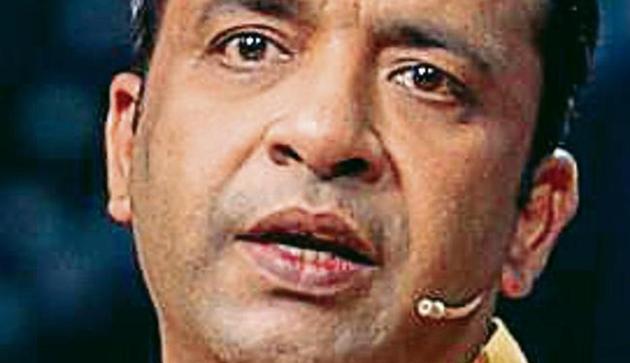‘Charity takes away dignity, biggest blot in solving problem of poverty,’ says Goonj founder
“Charity to my mind is one of the biggest blots in terms of solving the problem. In terms of survival, it is fine and it is needed,” he said.
Anshu Gupta, 48, founder of the non-profit Goonj and Ramon Magsaysay Award 2015 winner, has pioneered a unique model of anti-poverty intervention with his NGO that operates in 24 states and Union territories to distribute re-usable household material to the needy in exchange for community-development work. He doesn’t like to call it charity because charity, he says, kills dignity. Excerpts from an interview with Zia Haq:

Can philanthropy and charity be an efficient way of fighting poverty in a country like India?
So, charity to my mind is one of the biggest blots in terms of solving the problem. In terms of survival, it is fine and it is needed. But you can’t go on with it because this is something I have said in my Ted Talks also, which is that charity kills dignity. Without dignity, you cannot call it development; it might look [like] development, but your soul is gone. Charity takes away dignity. I would say that way, charity is not the solution. For the time being, when people go through a tough phase, that is fine but not forever.
And philanthropy?
Philanthropy is also a good way, but until and unless philanthropy and philanthropists change certain lenses, change the way we look at financially poor people, because when we say ‘poor’, that itself is a wrong notion. A large number of them are only financially poor. Also if you think — right from the government to the corporates and voluntary organisations, every single person has seen the financially weaker section as the so-called beneficiary and themselves as the ‘giver’, which is a 100% wrong notion. That’s because those so-called beneficiaries are never coming to you for something. Even in the most miserable situation, they live, they grow. All of them have huge amount of skills and social resources. They might be financially poor but are skilled and resourceful... This entire dynamics (of the poor being resource-less and skill-less) have to change if one has to see (real) development. People who think just by distributing money things will change, I don’t think it will.
So your approach has been to try out a more productive path?
I am saying you have to change those lenses. What is happening right now [is that] we are much more focused on the cities rather than going to the rural [areas]. That means we are busy in treating malaria but not killing the problem, which is the mosquito. Why are we forcing people to migrate? You have heard all those stories of people migrating by choice… I mean, which slum will attract people of the village?
Can you briefly tell us how Goonj began?
It started on the very basic need of clothing. We realised that clothing is a first visible sign of poverty. When the upper caste, lower caste, the rich and the poor, everything is decided on the basis of clothing. [When] You say ‘basic needs’, you still say ‘roti kapdaa makaan’ (food, clothing and housing). Still clothing has never been a subject of our development. It’s a charitable object or relief material.
This is one of the biggest proofs of how we are not using the right lenses to look at the problem. Similarly, we were the first people to talk about menstrual hygiene and sanitary pads in the country, which is again an absolutely ignored issue because the lenses are distorted. It all started that way but because we never wanted to do charity. As I said, charity kills dignity, this is where all the cloth-for-work initiatives came up. People take up a lot of development work, like roads, digging wells and people are rewarded in kind.
It sounds almost like an NREGA (National Rural Employment Guarantee Act) model of development?
No. Because whether it is food for work or money for work, which is NREGA, it is basically all about money. What we are doing is one [taking] part of society’s wastage, which is a big environmental threat, whether it is footwear, furniture, utensils or clothing… So we are dealing with 5.5 million tonne of re-usable material now every year. What we have been able to achieve are two things: we’ve been able to revive our strong tradition of shramdaan (voluntary labour) on a large scale in the social development space, and secondly, India also had a strong economic concept called barter economy, which we have revived with two new currencies, namely labour and material.
Get Current Updates on India News, Lok Sabha election 2024 live, Election 2024 along with Latest News and Top Headlines from India and around the world.




